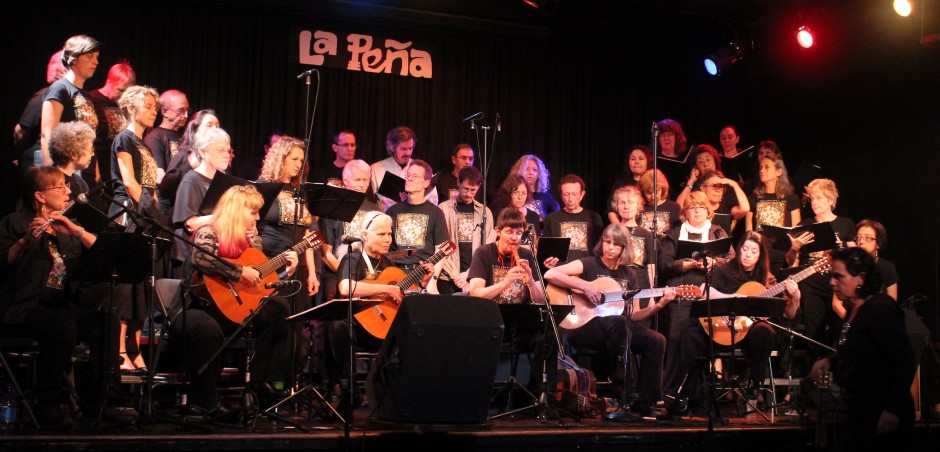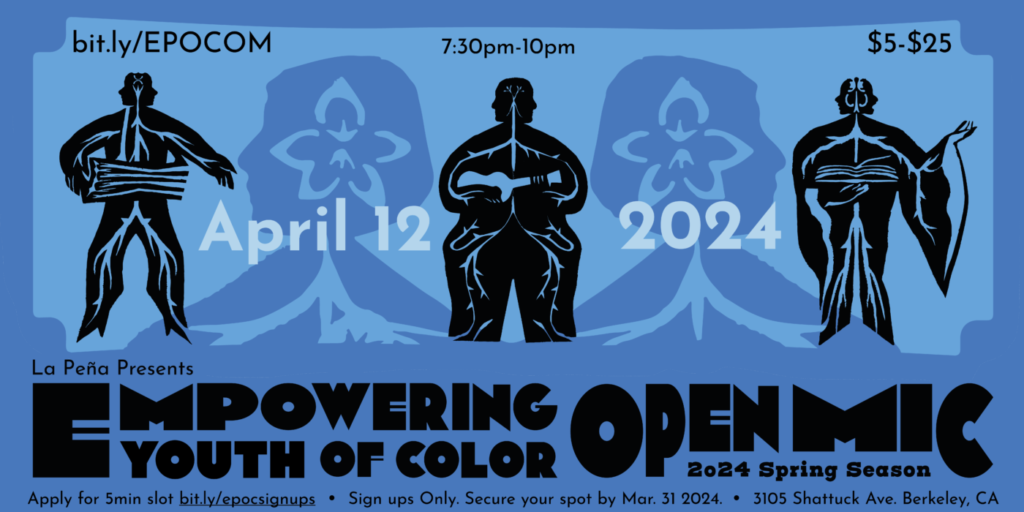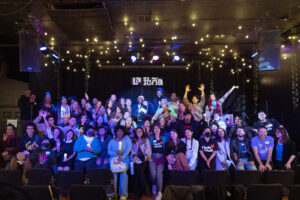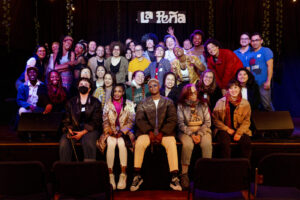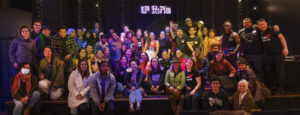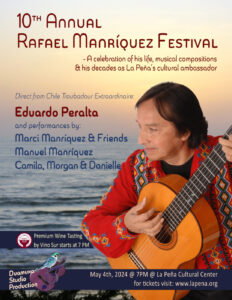 This event will be a beautiful opportunity to gather and honor the life, music, friendship, and eternal legacy of our beloved Rafael Manríquez. It will be a celebration of his life, music compositions, and decades as La Peña’s cultural ambassador.
This event will be a beautiful opportunity to gather and honor the life, music, friendship, and eternal legacy of our beloved Rafael Manríquez. It will be a celebration of his life, music compositions, and decades as La Peña’s cultural ambassador.
TICKETS | VOLUNTEER AND COME FOR FREE!
About Rafael Manríquez (3/27/1947-6/26/2013)
Rafael Manríquez was a beloved artist, guitarist, singer-songwriter, social activist, and champion of Chilean folk music. Born in Santiago, Chile, in 1947, Manríquez fell in love with the guitar at age 15 and followed his passion for nueva canción, the musical movement that combined rural, urban, Indigenous, mestizo, and pan-Latin American sounds with a commitment toward social change. Manríquez worked as a music journalist during one of the most momentous times in Chilean music history. As a reporter for the music magazine El Musiquero (1970-1973), he interviewed, reviewed, and wrote about key figures such as Víctor Jara, Inti-Illimani, Quilapayún, and Violeta Parra.
In 1970, as a performer he graced the stage at Festival de Viña as a part of Ñancahuazu with Kiko Alvarez and their song Cordillera Americana. He also performed as Jose Simón, a singer of romantic ballads – Gracias una vez más. It was the time of socialist president Salvador Allende, and performances by Latin American artists from like-minded movements such as Cuba’s Silvio Rodríguez (whom he also interviewed) and Pablo Milanés were commonplace at musical events. Rafael was among the many musicians deeply influenced by the musicality and lyricism of the Cuban Trova (Cuba de Guillén y Martí).
Then came the fateful day of September 11 th, 1973, when the commander-in-chief of the Chilean army, Augusto Pinochet, led a coup d’état, overthrowing Allende, and his government. Repression of leftist parties and ideologies followed, with thousands of people tortured and killed.
Rafael chose self-exile, first to Tumbaco, Ecuador, then in 1977 to Berkeley, California, where he lived most of the rest of his life. For more than three decades, he was a longtime fixture at La Peña Cultural Center in Berkeley, “the Music Man of La Peña (per the local press)” was a cultural ambassador performing between ten to twenty shows a year. Through an ongoing grant of the California Arts Council, for more than two decades, he was artist in residence there teaching guitar and Latin American folk music. In Rafael’s own words, La Peña was where he found his place. There he advocated for culture, worked for various solidarity causes and generously shared his music and talent. Rafael’s unstinting commitment to “la música con sentido” led him to be one of the founders of, musical arranger and longtime director of the La Peña Community Chorus.

By 1980, he and several others had formed Grupo Raíz, following the model of Chilean nueva canción groups. Grupo Raíz toured Europe, as well as North, Central, and South America, releasing three long-play recordings during their most active period, from 1980 to 1985. Their debut album Un Solo Camino, featured primarily songs composed by Rafael Manríquez. The two following albums, Amaneceres (Daybreak, 1981) and Por América del Centro (For Central America, 1984), were published on the Monitor label, which later became part of the Smithsonian Folkways collection.
After Grupo Raíz in 1985, Rafael returned to his solo career, releasing several full-length solo albums Andares, Canto a Gabriela, La Travesía, Canto y Soneto, and Hoy. He continued recording with other artists, such as his collaboration with David Barrows in Canto al Poeta and Amistades with Quique Cruz.
For Smithsonian Folkways, Rafael Manríquez produced and recorded ¡Que Viva el Canto! Songs of Chile (2008). This recording clearly demonstrates his commitment to showcasing Chilean culture and cultural workers, featuring over a dozen renowned Chilean musicians, including his dear colleague and friend Eduardo Peralta. ¡Que Viva el Canto! is a carefully curated compendium of twenty-five songs from three regions of Chile.
Following Rafael’s untimely demise on June 26, 2013, his family released two recordings, a double CD with a remastering of Andares and Hoy in 2014, and, in 2017 a full-length album “El Pajaro Vuela” featuring master performances by John Santos and Rebeca Mauleon, recorded at Bay Records.
Rafael composed over a hundred timeless songs in various Latin American styles, often transforming the poetry of Gabriela Mistral and Neruda into powerful lyrics. He was also an intrepid poet who created multiple notebooks of reflections and poetry that still await publication. His talent, resilience and dedication inspire our continued commitment to performing his music and sharing his poetry.
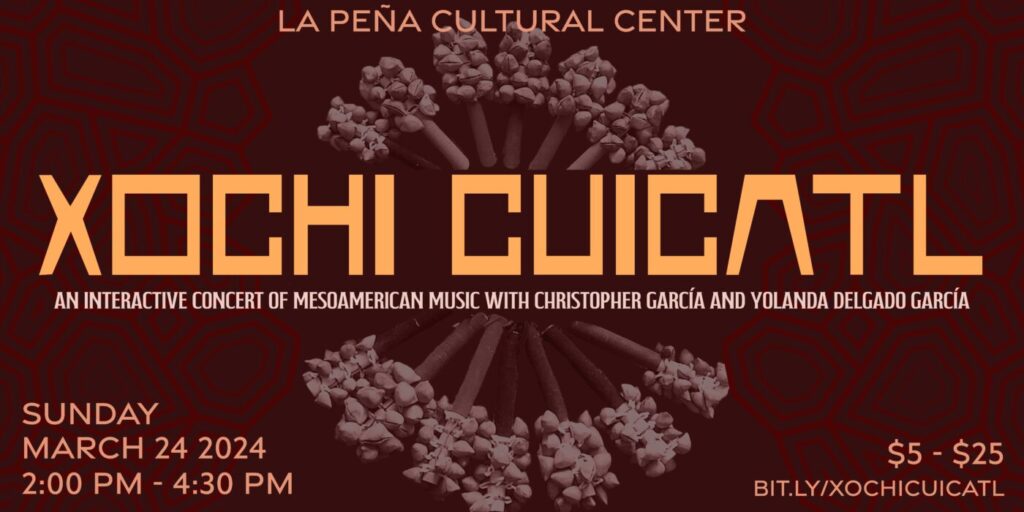

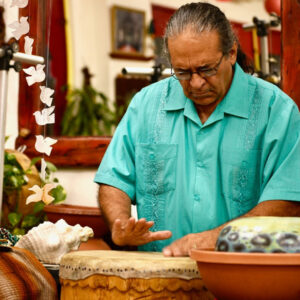 Christopher Garcia
Christopher Garcia 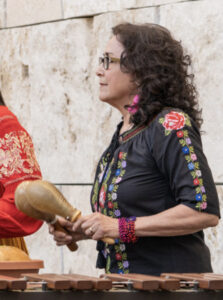 Yolanda Delgado Garcia
Yolanda Delgado Garcia 
